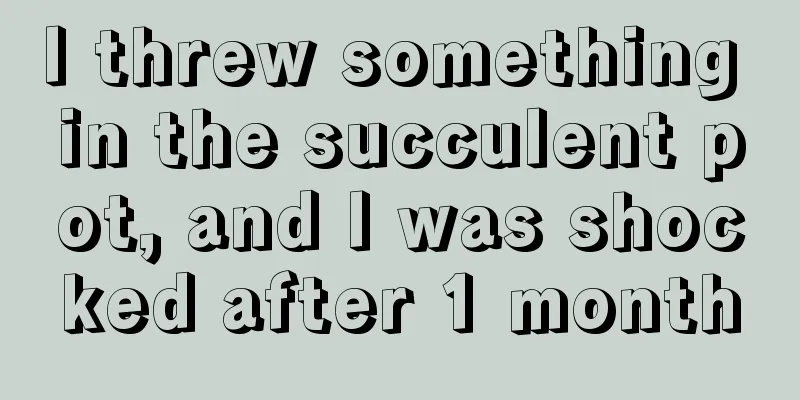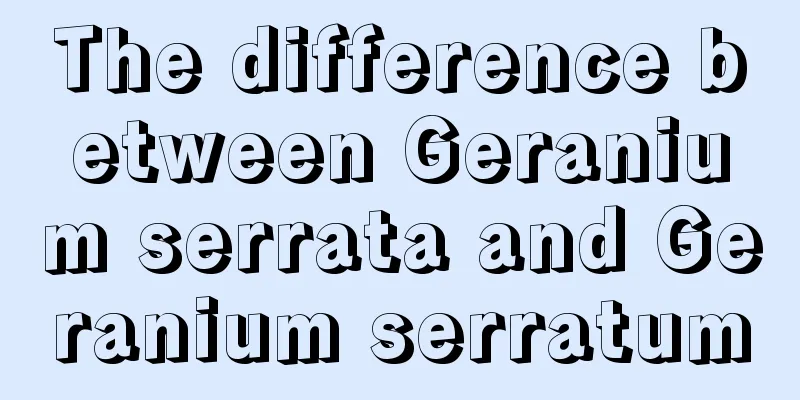I threw something in the succulent pot, and I was shocked after 1 month

Rub and growSlow-release fertilizerDo succulents also need fertilization? Just watering succulents can only maintain their survival. If you want them to grow vigorously and well, you still need to fertilize them. Succulents have small pots and less soil, so you need to be extra careful when fertilizing. Do not use large amounts of fertilizer to prevent burning the roots. At this time, you can use special succulent slow-release fertilizer. Slow-release fertilizers are very cheap, usually costing a dozen yuan a bag. You can use 4 or 5 pieces at a time and it can be used for one or two years. Application steps:1. Use it when repotting succulents. After removing the succulents from the pots, clean the original soil in the pots. 2. After re-adding soil, sprinkle 4 or 5 slow-release fertilizers at the bottom of the pot, continue to fill the soil, and pot the succulents according to normal steps. 3. Slow-release fertilizer will slowly penetrate nutrients into the soil, providing nutrients for the growth of succulents. Homemade FertilizerIf you don’t want to buy fertilizer specifically, you can also make it yourself using small things that can be found everywhere in life. Eggshell powderEggshells are rich in calcium, which can slowly release nutrients when mixed into the soil. step: 1. Clean the eggshells and dry them in the sun. 2. Crush the dried eggshells. Flower lovers who have a grinder can use it to grind the eggshells into powder. 3. When using, you can sprinkle the eggshell powder on the surface of the potting soil, or you can mix it directly into the soil. bone mealBone meal is rich in calcium and phosphorus, which can slowly release nutrients. step: 1. Collect leftover pork bones, fish bones, chicken bones, etc. and clean them. 2. Place it in the sun to dry and smash it with a small hammer. Flower lovers who have the conditions can use a grinder to crush it. 3. When using, you can sprinkle it directly on the surface of the potting soil or mix it into the soil. 10 years without root rotNutrient soilThe soil for succulents can be divided into nutrient soil and granular soil according to their uses. Nutrient soil mainly refers to leaf mold, peat soil, coconut bran, sawdust, pine needle soil, wood ash, rice husk charcoal, etc. These soils can provide nutrition for succulents. Granular soilThe granular soil for succulents mainly refers to perlite, akadama soil, vermiculite, river sand, Kanuma soil, iridescent stone, coarse sand, hyuga stone, diatomaceous earth, chlorite, medical stone, expanded clay, etc. It has little nutritional value and its main function is to enhance soil permeability and prevent root rot. Soil ratioExpanded clay is mainly placed at the bottom of the flower pot to allow water and air to pass through. (Author: Eat and Walk, Source: Orchid Bar) For the newly bought succulent plants, you can mix nutrient soil: granular soil in a ratio of 6:4. For succulents that are about two years old, the ratio of nutrient soil to granular soil can be 1:1. For succulent plants that have grown into old stumps, the ratio of nutrient soil: granular soil can be configured in a ratio of 3:7. Have flower lovers learned it? (Note: The pictures are from the Internet, and the copyright belongs to the original author. Due to conditions, the source of some pictures cannot be found and the author is not marked. If your rights are infringed, please contact Huahua WeChat qdxixixixixi or QQ1273160598 for deletion or copyright payment.) |
>>: How to prune Brazilian wood
Recommend
How to save the fortune tree when its trunk is half rotten
1. Pruning If you find that the trunk of the mone...
White Anthurium Flower Language and Symbolism
Flower language of white anthurium The flower lan...
How to eat red pears? Do you only know how to eat them raw?
Eat raw after softening The taste of red pears is...
Pest and disease control of black pine
Diseases Disease Type The main disease that may o...
Rose pictures
Red Rose Red rose should be one of the most commo...
What are the cultivation methods and precautions for potted wintersweet?
Potted wintersweet cultivation method Wintersweet...
What to do if plant leaves turn yellow in summer
Reasonable watering Water is the source of growth...
If you water the money tree like this, it will not only not die, but also keep it green.
1How often should I water the fortune tree? The m...
The cultivation method and cutting method of golden diamond
Cultivating golden diamonds is relatively simple,...
How to grow ivy and catnip in water?
How to plant ivy in water first step When cutting...
How and when to plant arrowhead mushrooms
Sagittaria, also known as water chestnut, sagitta...
The Flower Language and Events of Millettia reticulata
Millettia flowering Chicken blood vine usually bl...
When and how to plant mugwort
Mugwort planting time Mugwort is usually planted ...
The role of red flower jade in home furnishing
The ornamental effect of red flower jade If you w...
Common pests of Monstera and their control methods
Common pests of Monstera include citrus mealybugs...









